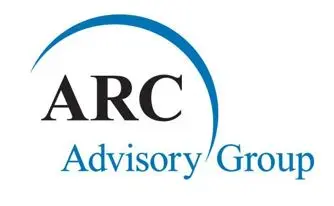

Some leading manufacturing organizations have made significant progress with their smart manufacturing improvement efforts. A key lesson is that you can transform difficult situations into “win-win” situations.
A growing number of leading manufacturing organizations are learning to see a “win-win” where others may still only see conflicting constraints. They are learning to employ smart manufacturing transformative capabilities to cost-effectively and reliably optimize process quality and throughput, while also addressing higher levels of operational complexity.
In many cases, the skill sets of these organizations have been burnished to optimal sharpness in the crucible of more stringent regulatory and competitive environments. Operating in a region with more stringent environmental compliance requirements is becoming a benefit, not a disadvantage, as it is driving better process control and breakthroughs for new improvements in energy efficiency and emissions reductions.
In other words, the higher regulatory constraints can be met, while not simply maintaining competitiveness globally, but improving it.
At the 2023 ARC Advisory Group Annual Forums in the US and in Europe, end-user and solution provider executives presented valuable insights on the progress being made by smart manufacturers, including Wienerberger AG, a  leading manufacturer of bricks and other infrastructure and housing envelope products in North America and Europe. A key AI and advanced analytics solution provider, SAS, has been helping Wienerberger and other manufacturers meet challenges associated with increased complexity and more stringent competitive and regulatory constraints.
leading manufacturer of bricks and other infrastructure and housing envelope products in North America and Europe. A key AI and advanced analytics solution provider, SAS, has been helping Wienerberger and other manufacturers meet challenges associated with increased complexity and more stringent competitive and regulatory constraints.
More recently, ARC Advisory Group discussed the latest developments in advanced analytics in the smart manufacturing domain along with an additional emphasis on energy cost optimization, with executives from SAS. As a leading supplier of advanced analytics solutions and consulting services, they bring a depth of practical experience about what it takes to ensure success in meeting energy transition and industrial competitiveness going forward in increasingly uncertain times.
For heavy industrial process companies like Wienerberger, meeting CO2 emissions reduction and energy efficiency product requirements in Europe is driving significant process control improvements on the plant floor. In many instances, for European manufacturers, the ROI associated with lowering CO2 emissions is on par with prior traditional cost considerations.
This is the “crucible” referred to above. It applies equally well to companies in oil and gas, mining, steel, chemicals, pulp and paper, and other heavy industries, Currently, with the exception of global companies who are holding their North America plants to the same standards as their European facilities, North America is not that crucible, but it is soon becoming one, given the impetus of the Inflation Reduction Act (IRA). In the meantime, compared to Europe, a lot of manufacturers in North America will be playing “catch-up” when it comes to competing with companies in Europe who are further along in their use of smart manufacturing capabilities to meet the many emissions reduction and energy-efficiency related regulatory challenges industries face.
SAS provides an Energy Cost Optimization Solution which uses AI and advanced analytics to enable process engineers to gain key insights about process parameters impacting energy consumption and process throughput, enabling setpoints to be set optimally rather than depending on less reliable "rules of thumb." Variability in processes can often be relatively high when the plant floor operators depend on the older traditional methods rather than applying the greater rigor now available. The tools SAS provides demonstrate a strong track record of reducing variability in key process parameters by optimizing the set points based on advanced analytics, machine learning, and artificial intelligence. (Link: Energy Cost Optimization).
It is a reflection of the shared corporate culture of Wienerberger and SAS that they are collaborating in these improvements. In its description on its LinkedIn company page, Wienerberger describes its sustainability posture as follows: “Sustainability is - from the efficient use of resources in production to human resource development - an integral part of our business and corporate culture.”
ARC Advisory Group continues to see increasing uptake in AI-driven advanced analytics and Machine Learning tools to help asset owner-operators address increasingly complex operational and regulatory environments.
Decision-makers are faced with a daunting array of solution providers. In some cases the ROI of a specific use case in a specific application at a specific plant may be very compelling from a stand-alone solution provider of any size. But it is clear that the ability to scale a point solution across a wide range of use cases and facilities must be considered with a wider and fuller perspective. In this context, the established platform, service offerings, and IoT and partner ecosystem offered by a seasoned and experienced analytics leader, such as SAS, are of great benefit to ensure scalability, stability, speed, and longer-term overall ROI benefits.

